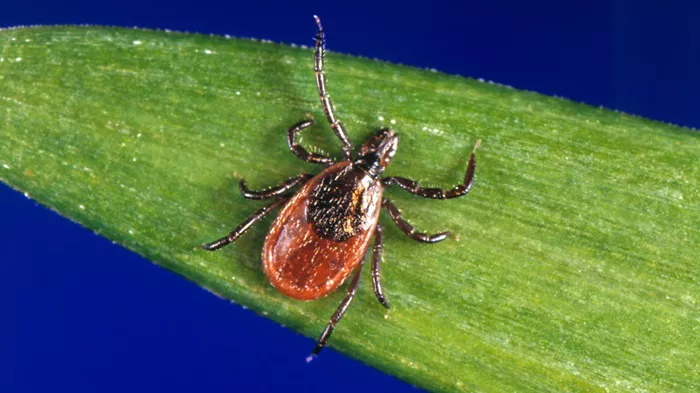A large-scale study has revealed that fathers’ mental health problems can negatively affect their children’s growth across multiple dimensions, including cognitive, emotional, linguistic, and physical development.
Traditionally, mothers have been viewed as the primary caregivers responsible for children’s healthy growth from pregnancy through adolescence. However, research published Monday in JAMA Pediatrics highlights the significant role fathers play in shaping their children’s development.
The study defines paternal psychological distress as symptoms or diagnoses of depression, anxiety, both conditions combined, or elevated stress. Findings indicate a slight but meaningful association between fathers’ mental health struggles and developmental challenges in their offspring, especially during the perinatal period—from conception through two years after birth.
Researchers emphasize that fetuses, infants, and toddlers are particularly sensitive to any mental health difficulties experienced by their parents, especially mothers. Yet, the new analysis shows that fathers’ psychological well-being also substantially impacts children’s growth.
“Men face increased risks of mental health difficulties when transitioning to fatherhood,” said lead researcher Dr. Delyse Hutchinson, an associate professor at Australia’s Deakin University SEED Lifespan Research Centre, in an email. She cited clinical depression rates up to 8%, anxiety up to 11%, and elevated stress between 6% and 9% among perinatal fathers.
Describing the research as the most comprehensive global review to date on paternal perinatal mental health and child development, Hutchinson noted, “The observed trends are remarkably consistent. This underscores the importance of supporting fathers if we want to improve family outcomes.”
The study expands on earlier research by examining links between paternal depression, anxiety, or stress and six domains of child development from birth to age 18: social-emotional skills, adaptive functioning, cognitive abilities, language, physical growth, and motor skills.
Social-emotional development includes children’s ability to build positive peer relationships, act beneficially toward others, form secure attachments, self-soothe, and maintain a healthy temperament. Adaptive functioning relates to handling change and meeting daily demands. Cognitive growth encompasses executive function, decision-making, memory, attention, learning, IQ, and academic performance.
Physical development covers factors such as preterm birth, growth during pregnancy, height, weight, developmental delays, abdominal pain, and sleep health. Motor development refers to fine motor skills—like writing or buttoning clothes—and gross motor skills, such as arm swinging, walking, or chewing.
The analysis pooled data from 84 studies involving thousands of father-child pairs, all tracked longitudinally from pregnancy through the first two postpartum years. Studies involving paternal illness, medication use, or substance abuse were excluded.
Results showed no evidence connecting paternal psychological distress with children’s adaptive functioning or motor development. However, slight associations emerged with social-emotional, cognitive, language, and physical development, most pronounced during toddlerhood, followed by infancy and middle childhood.
Postpartum paternal distress showed stronger links to child development issues than distress experienced before or during pregnancy, suggesting fathers’ mental health after birth may more directly affect offspring.
Experts explain that paternal mental health problems could reduce a father’s sensitivity and responsiveness to his child, thereby undermining secure attachment.
Independent reviewers from the Ann & Robert H. Lurie Children’s Hospital—Drs. Craig Garfield, Clarissa Simon, and John James Park—commented, “This review is timely. Fathers spend more time parenting than ever before and are increasingly recognized as vital contributors to family health and wellbeing.”
Dr. Alva Nasir, a pediatric professor at the University of Nebraska Medical Center who was not involved in the study, said the findings “confirm the importance of supportive parenting education for child health” and called for future research to explore all the positive ways fathers enrich their children’s lives.
However, the study’s reliance in part on unpublished ‘gray literature’—including doctoral theses and interviews with authors of eligible studies lacking reported data—raises some limitations. About 286 of 674 identified associations came from such sources.
Nonetheless, the authors found consistent patterns when comparing results from published versus unpublished data.
Nasir noted the study’s design did not establish causality and lacks broader context. “Paternal and child mental health are likely influenced by larger social, psychological, and economic factors, such as poverty, structural racism, and health disparities,” he said. “Separating paternal mental health from these systemic issues risks unfairly stigmatizing fathers as the root cause of children’s problems.”
He added that supporting children’s optimal development requires societal action to promote economic security, equity, and justice for families.
Experts agree the findings highlight the need to assess and address both parents’ mental health during perinatal care. The reviewers suggested leveraging existing maternal postpartum depression screening frameworks to develop father-focused interventions and policies.
Nasir called parental wellbeing “a national priority” given parents’ role as guardians of future generations.
However, fathers must feel empowered to openly discuss mental health challenges. Hutchinson emphasized, “Fatherhood can be a challenging time with many ups and downs. Early support-seeking is a strength, not a weakness.”
She encouraged fathers to consult general practitioners, therapists, or specialized perinatal clinics. Peer support and digital tools such as mindfulness and cognitive behavioral therapy apps may also be helpful.
Importantly, Hutchinson noted that prioritizing paternal health remains vital even as children grow older, since every stage of childhood presents unique developmental needs.
Related Topics



































